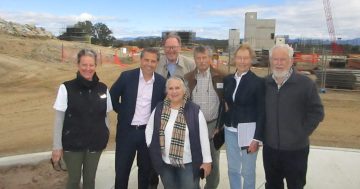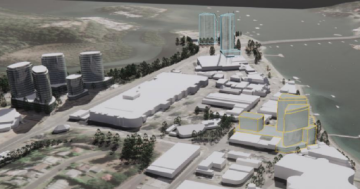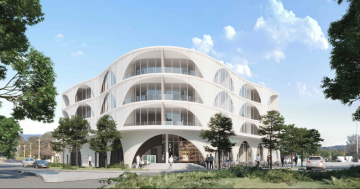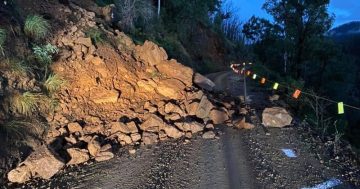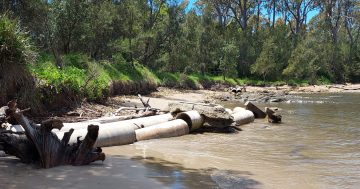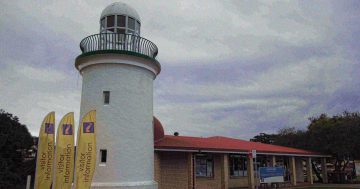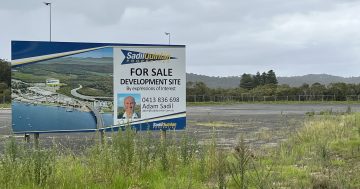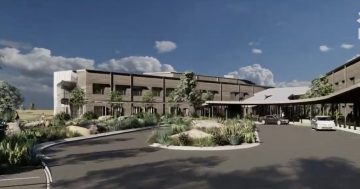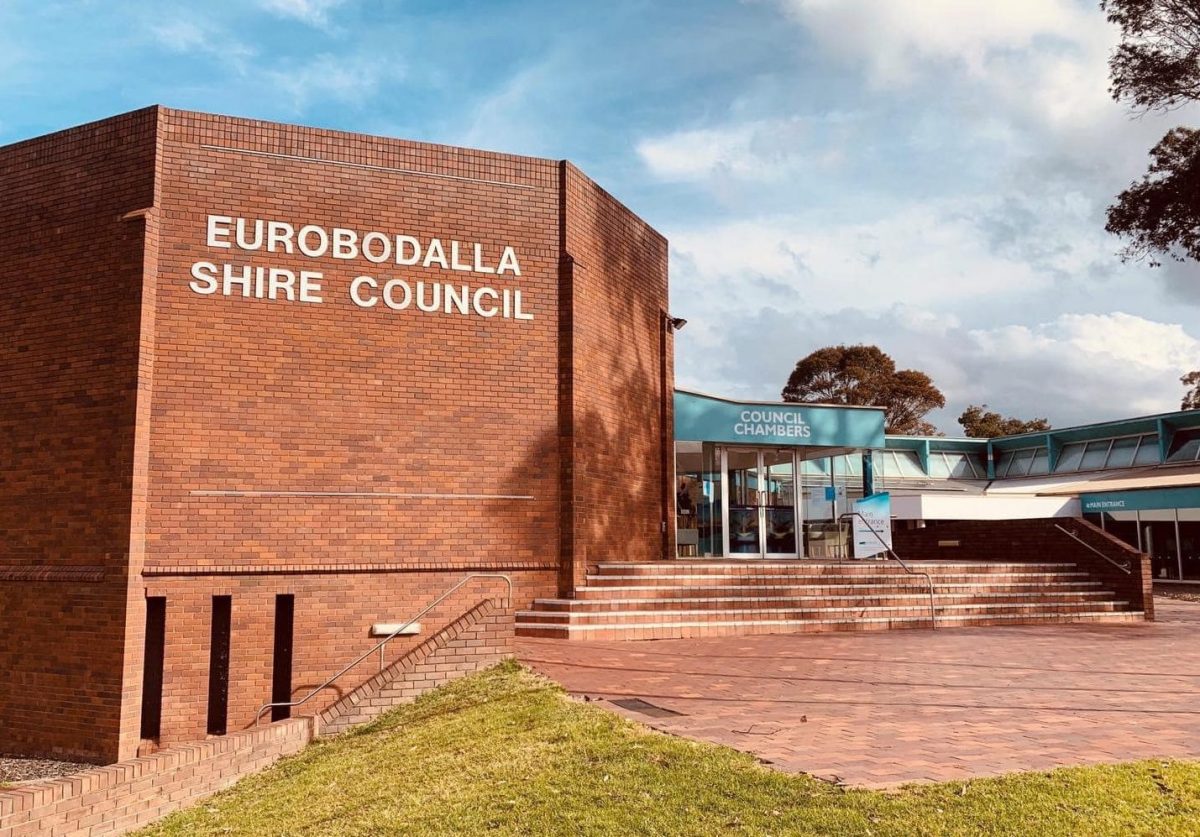
On 20 August Eurobodalla Shire Council held its penultimate regular council meeting before elections on 14 September. Photo: Eurobodalla Shire Council.
At the regular monthly meeting of Eurobodalla Shire Council, residents spoke about the need for a local radiotherapy service (LRS) in the new Eurobodalla Regional Hospital, and their claim of council lacking action on climate change.
The two topics dominated discussion at the penultimate council meeting on 20 August before elections are held on 14 September. It was noted that the council was in caretaker mode and the next two meetings would be held on 10 September and 29 October.
Lou Dampney and Peter Cormick, previous cancer patients, spoke about why the council should advocate to the NSW Government about LRS on the community’s behalf. Mylene Boulting, a representative of the One New Eurobodalla Level 4 Regional Hospital (ONE) advocacy group, spoke in a similar vein about why the shire’s ageing demographic made LRS a priority for the hospital as construction got underway.
They called for Professor Mick Reid’s independent report about the feasibility of LRS to be made public. The report was commissioned by NSW Health. They also refuted recent statements by officers of the Southern NSW Local Health District (SNSWLHD) that LRS would cost $100 million.
They came to the meeting well prepared having read the minutes of the SNSWLDH board meeting held on 22 August 2023. It provided an overview of the independent report. The minutes said that “Professor Reid noted that the Medical Staff Council are supportive for a service at Eurobodalla Regional Hospital but not at the cost of other services”. The minutes also said the capital cost of the service was estimated to be around $30 million with estimated annual recurrent costs of $3.5 million.
Ms Dampney said Councillor Anthony Mayne’s motion for the council to advocate for LRS was a “no-brainer”. She made the point that LRS was also needed in palliative care for pain alleviation.
Both she and Mr Cormick spoke of their personal experience of travelling to Canberra for radiotherapy. Mr Cormick said there was no higher priority than saving lives.
During subsequent discussion, Councillor Rob Pollock and Mayor Mat Hatcher said they should not let the Commonwealth Government off the hook because it had so much money. Cr Mayne’s motion for the council to join the community in supporting the inclusion and prioritisation of LRS was modified to add that the council also seek support from the NSW and Commonwealth governments. The motion was passed unanimously.
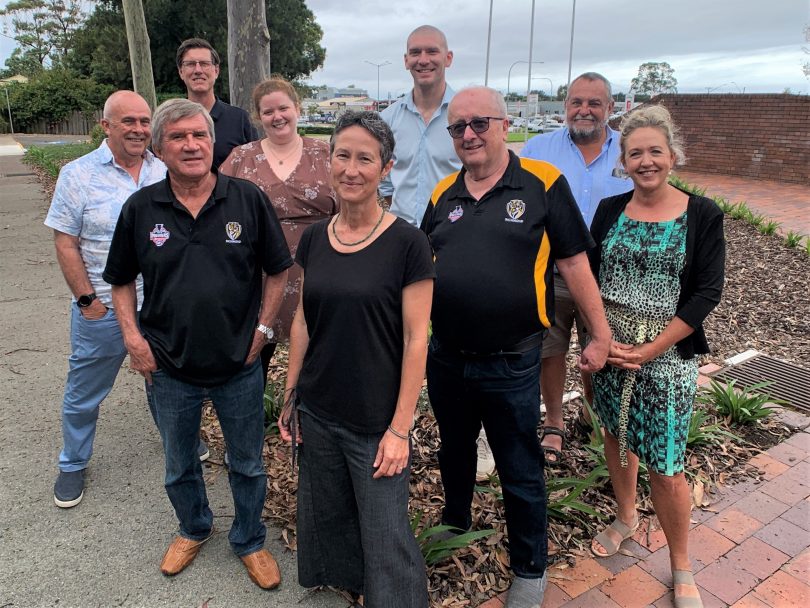
Eurobodalla councillors 2022-2024: David Grace, Rob Pollock, Anthony Mayne, Amber Shutz, Alison Worthington, Mayor Mathew Hatcher, Pete Diskon, Tubby Harrison, Tanya Dannock. Photo: Eurobodalla Shire Council.
Kathryn Maxwell, president of Southcoast Health & Sustainability Alliance (SHASA), was the other community member who addressed councillors. She said that while the council’s emissions targets were non-binding that was irrelevant because NSW Government legislation had set binding targets that the council was obliged to meet.
She said transport was the council’s biggest source of emissions, yet it had only one electric vehicle and the general manager had said it was not a priority. Ms Maxwell said methane from waste was another big source of emissions, but the council had not introduced a food organics and garden organics scheme (FOGO) like other councils.
Ms Maxwell said there was no budget for the council’s climate action plan and the team responsible was inadequately staffed and resourced. “Council has been kicking the can down the road since 2020,” she said.
The discussion about Councillor Alison Worthington’s motion that the council acknowledges the Climate Change (Net Zero Future) Act 2023 and its obligations in regards to emissions reductions to achieve the targets set out in the act was heated.
Cr Pollock and Councillor David Grace said voting on the motion had financial implications for the incoming council so the motion should be deferred.
Cr Worthington said she was surprised there were any questions on the motion as the Canberra Region Joint Organisation (CRJO) Net Zero Accelerator Program had provided a webinar on the topic. “It is upon us to implement that.
“While I hear your concern about the cost, I am concerned about the cost of not acting,” Cr Worthington said. “The UN Secretary General referred to it as the highway to hell.”
Instead of voting on the motion, councillors decided to defer her motion and prepare a report on the cost implications of it and that it be presented to the incoming council at the November 2024 meeting. That was disappointing for outgoing Cr Worthington.
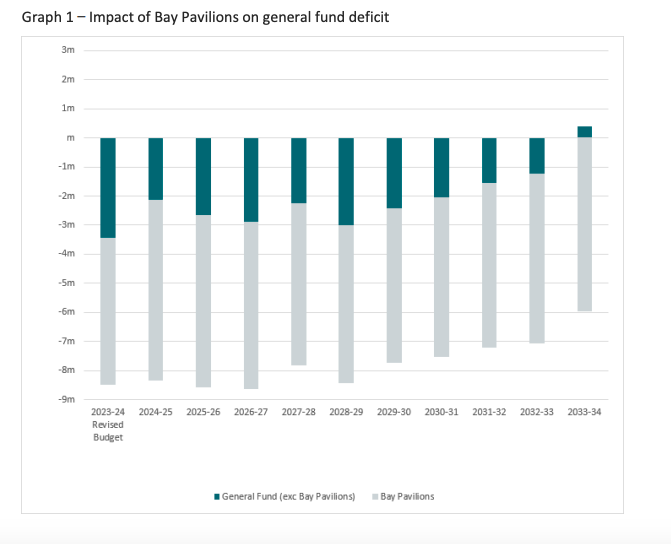
Graph of the impact of the Bay Pavilions on Eurobodalla Shire Council’s general fund. Image: Papers for 20 August 2024 regular meeting of Eurobodalla Shire Council.
Yet the motion for the council to receive and note the Bay Pavilions Sustainability Plan was passed with much less debate even though the annual operating cost is currently estimated to be $5-6 million over the next 10 years.
Cr Mayne commended staff for “picking up this poisoned chalice and addressing what is a big issue and will be for years”.
The councillors concluded that by receiving and noting the plan they were not precluding the incoming council from doing anything it liked concerning the Bay Pavilions.







